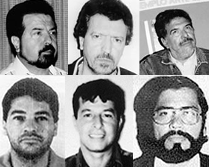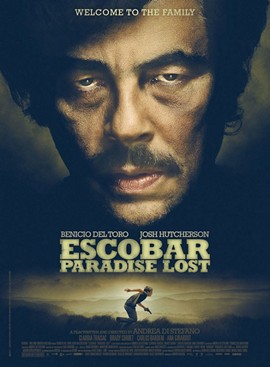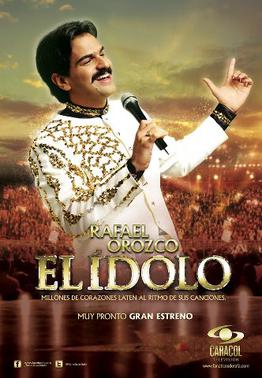Plot summary
Plot overview
Delirium opens when its main protagonist, an ex-Literature professor turned traveling Purina salesman named Aguilar, discovers that while away on a four-day business trip his wife Agustina endured an experience that provoked a severe dissolution of her sanity. The book chronicles Aguilar's search for answers and his efforts to rehabilitate his young, beautiful and admittedly singular wife through the use of alternating narrative styles that, as the novel progresses, shed further light on the mysterious events that took place during Aguilar's absence as well as the nature of Agustina's family and childhood, both of which precipitated Agustina's struggle with mental illness.
Delirium is organized and constructed through the utilization of a narrative pattern that proceeds in the following order: Aguilar, Midas (Agustina's ex-lover), Agustina, Aguilar, third-person narration of Nicholas and Blanca Portulinus (Agustina's grandparents). This pattern is repeated throughout the majority of the novel and helps to streamline and isolate the progression of several distinctly different, albeit entirely connected, storylines that are never eager to lend the reader immediate access to their secrets.
Plot: in depth
Delirium begins when Aguilar returns home from a weekend business trip to find several messages on his answering machine asking him to come pick his wife up at a hotel in downtown Bogotá. Upon arriving at the hotel Aguilar finds Agustina in her room with a strange man, existing only as a bombed out shell of her former self. Once home Agustina remains incredibly distant, sometimes even hostile, too preoccupied with abnormal purification rituals and rantings about her dead father's impending visit, to the leave the apartment or even get dressed. Driven by his love for his wife, and aided by the unexpected arrival of Agustina's Aunt Sofi, Aguilar refuses to give up, however, and sets out to discover exactly what happened to Agustina.
Aguilar cannot unravel the events of that weekend or resuscitate Agustina's sanity without help and thus he enlists the aid of an alluring hotel employee, named Anita, who lets Aguilar know that whoever his wife was with that weekend their behavior was in no way romantic and provides Aguilar with some of Agustina's belongings that she had left at the hotel. Even more integral to the success of Aguilar's investigation, however, is Aunt Sofi, who, in conjunction with Agustina's narratives about her childhood and the narrative depicting Nicholas Portulinus' own struggles with insanity, helps Aguilar to better understand Agustina's past, which helps to better explain her present behavior.
The reader comes to discover Agustina's childhood was not a typical one. She grew up as the sole, attention-deprived daughter in an extremely wealthy Colombian family, the Londoños, and exhibited signs of mental instability (perhaps inherited from her grandfather who one night, when under the supervision of Agustina's mother, Eugenia, wandered off and drowned in a nearby river) even as a child. Agustina believed that she possessed visionary powers, powers that allowed her to see the future, and in her youth Agustina and her little brother, Bichi, would often perform rituals, often in an attempt to spare her brother from the wrath of her father who would physically and emotionally harass Bichi for his effeminate tendencies. The source of Agustina's power, as she believed, were several photographs that Bichi and her used secretly during their rituals; photographs that would later come to tear her family apart.
Running parallel to the rest of the novel Midas' rags to riches to rags storyline tells the tale of Midas, a high class Aerobics Center owner and money launderer for Pablo Escobar, and his equally well to do and similarly employed friends (one of which happens to be Agustina's brother Joaco). Midas' story initially focuses upon a friendly, albeit high stakes, bet that Midas could organize a sexual situation to arouse his newly paralyzed and consequently impotent friend, Spider. Midas' story soon takes a turn for worse when Spider's thugs, while in the process of attempting to arouse Spider via the means of sadomasochism, inadvertently kill a prostitute (Sara Luz) in Midas' gym. The authorities are soon called into investigate and although they find nothing, Midas has covered his tracks well, he nonetheless feels the need to get away for a relaxing weekend, accepting an invitation from Joaco to come spend the weekend with the Londoño family (minus Carlos Vincente Sr. who has since died) at their estate in Sasaima.
Once there, however, Midas realizes that, due in large part to her mother's insistence on skirting the truth, Agustina has begun to slip precariously towards her madness, a madness that Midas, being Agustina's former lover, knows all too well. Before the delirium is able to fully set in, however, Midas puts Agustina on the back of his motorcycle and rushes her away from both her family and her own deteriorating mind. Midas' heroism does not last long, though, for he soon hatches a plan to save his reputation that inadvertently plunges Agustina into her debilitating dementia.
Soon, however, it becomes clear (due to the information that the other narratives grant) that Agustina is already well on her way to recovery. The novel concludes positively when Aguilar returns home one night to find a note written by Agustina. "Professor Aguilar", it reads "if you still love me despite everything, wear a red tie tomorrow." Aguilar then, with a certain degree of romanticism, wakes up the next morning and dons the reddest tie he could find before heading down the stairs to breakfast.














